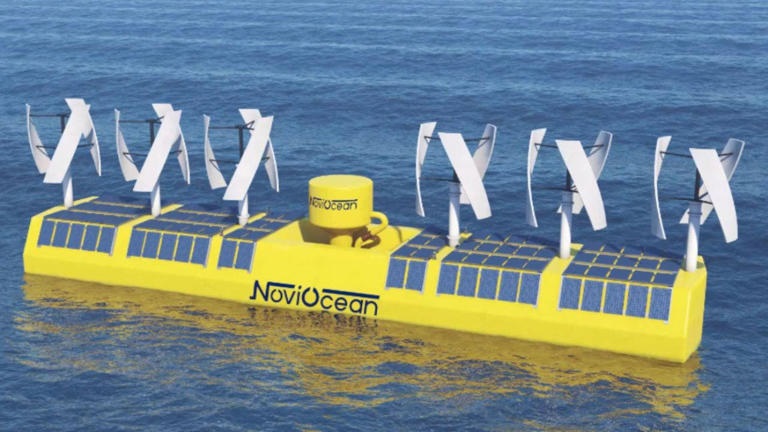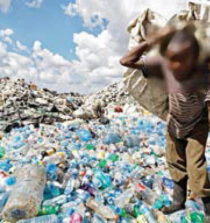Brazil’s energy sector will see a reform agenda gain momentum from a Bolsonaro win, but a change in direction if Haddad can pull off an unlikely comeback. In this piece, Rodrigo Lucchesi examines the strength and weakness of both camps.
Brazil’s impending presidential election run-off offers the country’s energy industry two very clear alternatives. The poll on Sunday pits a candidate committed to further rolling back the state’s involvement against an opponent who advocates undoing much of the cautious progress of the current administration, towards a less state-dominated industry.
The only major question mark is whether either candidate—the rightist Jair Bolsonaro, favourite after picking up 46% of the vote in the first round, or the leftist Fernando Haddad, the underdog after garnering less than 30%—pivots away from their staked-out positions towards a more centrist approach to try to ensure victory in the 28 October vote.
Interim president Michel Temer, in power since 2016 after the fall-out of a corruption scandal led to the impeachment of president Dilma Rousseff, has promoted several regulatory changes in the oil industry, both in the upstream and downstream, although the latter has already proved more problematic.
Reforms in the exploration and production (E&P) sector have included the return of regular bidding rounds, removing the requirement for state-owned Petrobras to be the sole operator in the country’s pre-salt offshore blocks and a reduction in minimum levels of project involvement for domestic oil services firms.
The changes were seen by the global oil industry as significantly more positive than previous policies promoted by Rousseff and her predecessor and mentor Lula da Silva. These leftist administrations pursued an agenda that included limited access for foreign oil companies to the country’s reserves, a new production-sharing contract (PSC) seen as less profitable for project participants, and bidding rounds that were both sparse and restricted to less interesting exploration areas.
Vast potential
Brazil has held five bidding rounds over the past two years, awarding stakes in 72 exploration blocks in both onshore and offshore sectors and raising more than $7bn in bonus payments. A raft of the largest international oil companies, including BP, Chevron, Norway’s Equinor, ExxonMobil, Shell and Total, have acquired new Brazilian acreage, not only in the most high-profile pre-salt basins but also other areas such as the equatorial margin.
According to geoscientists, these regions may replicate the geology of petroleum systems in Ivory Coast and Ghana where discoveries have been made in recent years.
Similarly, Exxon discoveries in Guyana—the firm recently announced its ninth discovery there within the last three years and estimates reserves at 4bn barrels—may stimulate increased interest in more northerly regions of the Brazilian offshore.
The pre-salt basins, where a raft of high-profile global discoveries have been made, moved Brazil into the world’s largest deep-water producer slot with a 32% global share by 2016, according to the Energy Information Administration (EIA), and remains the jewel in the country’s E&P crown. The conventional, non-pre-salt offshore, including the equatorial margin, new frontier areas and provinces with existing developments, has also been receiving IOC attention. Similarly, the country’s onshore offers mature basins, which could be attractive for redevelopment by smaller players.
According to the country’s national petroleum agency (ANP), less than 5% of the sedimentary areas in Brazil have been licensed for hydrocarbons E&P and in total only 30,000 wells have been drilled, the same number drilled per year in the US. This serves to emphasise the vastness of Brazilian potential.
Reform relief
The Temer reforms have been welcomed beyond simply the boom in licensing rounds. Offering pre-salt operatorships outside of Petrobras hasn’t been to the benefit solely of IOCs, but also to the Brazilian giant itself, which has capital and human resource constraints.
The reduction, or in certain cases abolition entirely, in local content requirements should also reduce cost blow-outs and delays, which have stretched to as much as three years in certain projects. In floating production storage and offloading system (FPSO) construction, for example, local shipyards weren’t able to keep up with their Asian competitors.
“The corrupt scheme harmed and caused severe financial loss to Petrobras”
But industry veteran Jorge Camargo, formerly a senior executive at Petrobras and Equinor, summed up the feeling that more progress is needed when last year he described the Temer administration’s reform package as the removal of a “first layer of regulatory excess”. Thus, the contest between the pro-market Bolsonaro and the Lula disciple Haddad takes on a crucial significance.
Obstacles to further E&P growth remain. According to Camargo, while the logjam in access to licences may have eased, no drilling permits have been issued since 2013 for exploration wells outside the Campos and Santos Basins by the country’s environmental licensing agency.
In his view, the permit-issuing process must be more agile without jeopardising environmental needs.
Progress on a Petrobras programme to divest non-core assets is also slow and dogged by suspicions of political interference.
The firm is trying to sell over 100 small oilfields in areas where it’s no longer focused, including onshore and shallow water provinces. This could have advantages both in re-energising moribund sectors through the arrival of more focused new entrants and also helping to rebuild Petrobras’ battered balance sheet. But intense scrutiny by the federal courts of accounts—perhaps understandable given Brazil’s recent experience of corporate scandal and intense public anger—is seen in some quarters as excessive and holding up agreed deals.
Up for sale
Another huge-ticket item that will be sensitive to the new political environment is a potential sale of discovered but undeveloped reserves currently within the Petrobras portfolio. The “transfer of rights” agreement signed with the government in 2010 gave the firm rights to explore and produce up to 5bn barrels of oil equivalent from a specific acreage within the pre-salt area. But discoveries far exceeded 5bn and—assuming a Bolsonaro victory, but perhaps more doubtful under a Haddad administration—the working assumption is that Petrobras and the government will offer the excess reserves, estimates of which are in a 9-15bn boe range, to the market through a bidding round next year.
A committee with representatives from the ministry of finances, ministry of mines and energy and ministry of planning have been negotiating a deal with Petrobras since 2017. Up for discussion, in addition to delineating the breakdown of excess reserves, is a possible reimbursement to Petrobras. The firm is arguing that the price it paid for its 5bn-barrel share in 2010 is now too high and, under the terms of the agreement, it should be given a rebate. The recent recovery in benchmark international crude to over $70 a barrel would seem, though, to weaken Petrobras’ case.
Nonetheless, it has been widely reported that both sides are close to a deal and could schedule the bidding round for 2019, again a schedule that could be threatened by a significant U-turn in government policy towards a more statist direction.
Even for its allotted 5bn barrels, Petrobras is keen to involve IOCs as farm-in partners. A bill to enact the legislation to facilitate this is under evaluation by congress—a body that also saw seismic change in the congressional elections that sat alongside the first round of the presidential vote.
Two new exploration bidding rounds are planned for 2019, one of them containing blocks in the prolific pre-salt basins. ANP is also setting up a new regime for onshore acreage licensing which will eliminate specific rounds. All non-contracted blocks will be permanently available for oil companies to negotiate bilaterally with the agency.
Drilling boost
Next year should also see a rise in Brazilian exploration drilling activities, as there are 23 new wildcat wells already planned, which would be the highest since 2014. It’s still a small number for the size and potential of the country, but indicates a current mood of optimism in the E&P sector.
Three large projects are slated to produce first oil in 2019—the Berbig ão and Atapu fields, operated by Petrobras (42.5% ownership) in partnership with Shell (25%), Total (22.5%) and Chinese-Portuguese joint venture Petrogal (10%); and a fourth FPSO on the Buzios project, which in April this year was the first transfer of rights field to come on stream when its first FPSO started up.
Recent oil auctions in Mexico were less successful than expected, which some analysts attributed to the mood of greater optimism about the Brazilian upstream being ‘open for business’. “Brazil has better geology and less political risk than Mexico,” says Adriano Pires, a consultant at Brazil’s Center for Infrastructure.
But this optimism is inextricably linked to growing sentiment that Bolsonaro will do enough to get over the line in the presidential second round. Whatever one thinks of his more controversial social policies, his smaller-state policies clearly represent a continuation and even acceleration of Temer’s reforms.
Petrobras is trying to sell over 100 small oilfields in areas where it’s no longer focused.
He’s committed to further reducing local content requirements and is in favour of a move away from subsidies to fuel prices in line with international markets.
Although relatively vaguely sketched out, his promises to avoid short-term fluctuations reflect a strong populist streak that sits alongside his free-marketeer instincts. He supports Petrobras privatisation, as long as the government retains a golden share, although it doesn’t appear to be among his top priorities.
Bolsonaro’s manifesto also calls for the end of Petrobras’ monopoly in the natural gas market, offering third-party access to pipelines and infrastructure, as a way to promote increased gas demand and to help move the country towards a cleaner energy mix.
In sharp contrast, Haddad, from the leftist Workers’ Party which ruled the country from 2003 to 2016, plans to re-impose controls on fuels and residential gas prices, stop offering pre-salt acreage to private companies and use Petrobras, once again, as the motor of development, supporting local industry and investing in areas beyond petroleum, such as biofuels, electricity, fertilisers and petrochemical.
While a return to these less investment-friendly policies—Bolsonaro supporters decry it as a Venezuela-isation, which is an exaggeration, but has proved a popular right-wing rallying call across Latin America—would be a blow to would-be investors in Brazilian E&P, the electoral numbers give some comfort.
Political analysts suggest that if Haddad is to pull off an unlikely win, he must, after shoring up his leftist credential in the first round, tack sharply to the centre and distance himself from his mentor Lula’s more extreme tenets. Thus, even a Haddad win may not necessarily see a lurch back to ultra-protectionist policies and total state hegemony in the sector.
Source: Petroleum Economist








